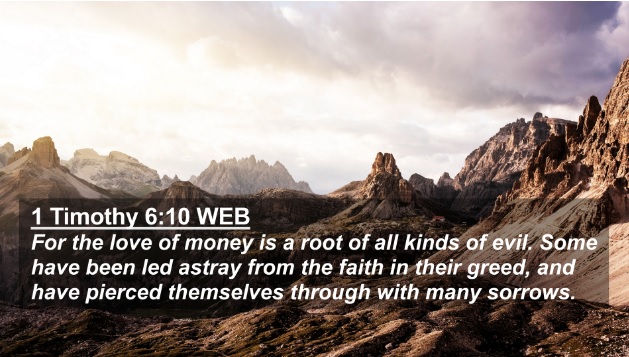“Go therefore and make disciples of all the nations…teaching them to observe all that I commanded you; and lo, I am with you always, even to the end of the age” (Matthew 28:19-20, NASB).
——————–
Contents
1) Judges and Ruth (Doy Moyer)
2) Keeping the Big Picture Before Us (Jesse A. Flowers)
3) Sword Tips #15 (Joe R. Price)
——————–

-1-
Judges and Ruth
Doy Moyer
When we think of a judge, we usually think of someone sitting at a bench and overseeing a court case. That’s not what we are looking at in the biblical book, however. Instead, we are reading about “deliverers,” those who were given strength for a time to defeat particular enemies. The period of the judges begins with the death of Joshua and lasts a little over 300 years, ending with the beginning of Saul’s reign in ca. 1050 B.C. Since the judges worked more locally instead of nationally, it is likely that some of them overlapped each other in time. Bear in mind that at this time in Israel’s history, there was still no centralized government, no capital, and no physical king.
While Joshua’s conquests gave the Israelites the land initially, the process of weeding out the nations would take time. This should have been happening in the days of the judges, but sadly it did not. The period of the judges would be a picture of a people who lost their way. It became dismal and dark for the nation. What was supposed to be a theocracy with Yahweh as their king became rather more like anarchy, with no real leadership and little concern for righteousness. This is summed up both in Judges 17:6 and 21:25:
“In those days there was no king in Israel; every man did what was right in his own eyes.”
With no standard, no real purpose, and no sense of God’s covenant, the people strayed horribly. They gave themselves over to idolatry and relativism, politically, religiously, and morally. There was confusion, apostasy, and a spiritual wasteland that came from it all. To get the sense of this, consider Judges 2:11-19, which describes the situation and the general cycle of the judges period.
First, the sons of Israel did evil and went after false gods (Baals). In doing this, they forsook the Lord and provoked Him to anger, which is exactly what He had warned them about. Idolatry became one of their worst problems.
Second, because they provoked God, He gave them over into the hands of plunderers and enemies. God’s hand was against them for their sins, “as the Lord had sworn to them, so that they were severely distressed” (vs. 15).
Third, after a time, God would raise up judges, “who delivered them from the hands of those who plundered them.” Typically, after being severely distressed for a time, they would cry out to God for deliverance. He would listen and send them relief through a deliverer.
Fourth, they would refuse to listen and learn, and so after the judge was gone they would revert back into sin: “they would turn back and act more corruptly than their fathers” (vs. 19). As time progressed, the sins of the people were becoming worse. Each generation carried sin even further. Sadly, that is typically the way sin operates. However far one generation goes, the next will take it further.
Because of the sins of the people, what Joshua had begun in conquering the land was hindered. The nations were not, then, completely driven out; and they would become thorns in the side of Israel.
There are several deliverers mentioned in Judges, and a few that stand out. Sadly, even among the standouts, there are few that would be considered righteous overall. While God gave His Spirit to strengthen them to defeat the enemies, they didn’t always exhibit great personal character. Think of men like Jephthah and Samson. They showed elements of faith, to be sure, but also greatly struggled with carnal attitudes. The only woman to be a deliverer was Deborah, a prophetess, and her contrast with Barak seems to demonstrate that Israel was lacking in serious male leadership at the time (ch. 4-5). Gideon, though scared at first, showed great promise and did some good, but then his wicked son tried to make himself king, which didn’t end well.
One striking issue in Judges is the lack of worship for Yahweh, and precious little mention of the tabernacle. This silence highlights the depth of Israel’s movement away from God at this time in their history. One might wonder how Israel could survive at all. The answer still lies with God, who, through all of this unfaithfulness, would still keep His promises to Abraham alive.
This is where the story of Ruth comes in. The amazing facet to this story is how God take’s a Moabite woman and accomplishes His purposes of redemption through her. The Moabites had been forbidden from being in the assembly of Israel. Yet the evil in Israel at this time contrasts with God’s will, and He uses a gentile woman to keep His plans alive.
While the story of Ruth is itself fascinating, showing the concept of the kinsmen-redeemer, the final purpose of the book is found in the genealogy. The last word in the book is “David.” This period was a time in which they recognized no king, doing what they wanted, and “David” contrasts with this as the man who would become the standard of the kings and type of the Messiah. In such a dismal period, God kept alive that great promise made to Abraham that through His seed all nations would be blessed.
— Via Articles from the Vestavia church of Christ, March 19, 2017
——————–

-2-
Keeping the BIG Picture Before Us
Jesse A. Flowers
“Choosing rather to suffer affliction with the people of God than to enjoy the passing pleasures of sin” (Hebrews 11:25).
The faith of Moses ought to be inspiring to every Christian. He was raised as the son of Pharaoh’s daughter. He “was learned in all the wisdom of the Egyptians, and was mighty in words and deeds” (Acts 7:22). Every day he had access to every form of luxury and pleasure this ancient kingdom had to offer. He was surrounded by immense wealth and was directly connected to royalty. And yet he chose to align himself with the persecuted people of God. He chose rather to “endure ill-treatment” (NASB) with the people of God who were slaves of Egypt experiencing harsh bondage each day. He chose guaranteed mistreatment rather than enjoying the pleasures of sin for a season. He realized that path in life wasn’t worth it in the end. The pleasures of sin are always fleeting. Those who are deceived by them and indulge in them are left empty and unfulfilled. There is no lasting satisfaction that attends sinfulness, only misery, sorrow, and condemnation. As the apostle John wrote, “the world is passing away, and the lust of it; but he who does the will of God abides forever” (1 John 2:17).
Is there pleasure in sin? The Bible says “yes” there is. Is it worth it? Why don’t we ask David (2 Sam. 11-12) or Judas Iscariot (Matt. 26-27)? As someone once said, “Sin will take you farther than you want to go, keep you longer than you want to stay, and cost you more than you want to pay.” No, the temporary pleasure of sin is never worth it. The wages of sin is death (Rom. 6:23). Our sins separate us from God (Isa. 59:1-2). There is no peace for the wicked (Isa. 48:22). The consequences of fleeting sin will often destroy your life like it did to David. And if unrepented of, it will ultimately cost you your soul (Luke 12:20). As Jesus asked, “For what will it profit a man if he gains the whole world, and loses his own soul?” (Mark 8:36).
Let us be wise and learn from the example of Moses. Let us possess that kind of faith. Let us always be willing to suffer affliction with the people of God, rather than love the world and the things of the world (1 John 2:15-16) that will be burned up in that Day (2 Peter 3:1-14). Let us always keep the BIG picture before us, as Moses did, and look to the reward (11:26), the eternal reward of heaven!
— Via Articles from the Knollwood church of Christ, March 2024
——————–

-3-
“And take…the sword of the Spirit, which is the word of God” (Eph. 6:17).
Sword Tips #15
Joe R. Price
And He said to them, “Take heed and beware of covetousness, for one’s life does not consist in the abundance of the things he possesses” (Luke 12:15).
Jesus warns us against greediness. Covetousness distorts the meaning of life. Avoid defining your life by the amount of things you possess.
Possessions come and go, and when you die you will not take any of them with you.
You will stand before God in judgment without any of your earthly possessions.
Therefore, “seek first the kingdom of God and his righteousness” and your physical needs will be supplied by your heavenly Father (Matt. 6:33).
——————–
The Steps That Lead to Eternal Salvation
1) Hear the gospel — for that is how faith comes (Rom. 10:17; John 20:30-31).
2) Believe in the deity of Jesus Christ, the Son of God (John 8:24; John 3:18).
3) Repent of sins. For every accountable person has sinned (Romans 3:23; Romans 3:10), which causes one to be spiritually dead (Ephesians 2:1) and separated from God (Isaiah 59:1-2; Romans 6:23). Therefore, repentance of sin is necessary (Luke 13:5; Acts 17:30). For whether the sin seems great or small, there will still be the same penalty for either (Matt. 12:36-37; 2 Cor. 5:10) — and even for a lie (Rev. 21:8).
4) Confess faith in Christ (Rom. 10:9-10; Acts 8:36-38).
5) Be baptized in water for the remission of sins (Mark 16:16; Acts 2:38; 22:16; 1 Pet. 3:21). This is the final step that puts one into Christ (Gal. 3:26-27). For from that baptism, one is then raised as a new creature (2 Cor. 5:17), having all sins forgiven and beginning a new life as a Christian (Rom. 6:3-4). For the one being baptized does so “through faith in the working of God” (Col. 2:12). In other words, believing that God will keep His word and forgive after one submits to these necessary steps. And now as a Christian, we then need to…
6) Continue in the faith by living for the Lord; for, if not, salvation can be lost (Matt. 24:13; Heb. 10:36-39; Rev. 2:10; 2 Pet. 2:20-22).
——————–
Tebeau Street
CHURCH OF CHRIST
1402 Tebeau Street, Waycross, GA 31501
Sunday: 9 a.m. Bible Classes and 10 a.m. Worship Service. Congregational Song Service: 5 p.m. for every first Sunday of the month.
Wednesday: 7 p.m. Bible Classes
evangelist/editor: Tom Edwards (912) 281-9917
Tom@ThomasTEdwards.com
https://thomastedwards.com/go/all.htm (This is a link to the older version of the Gospel Observer website, but with bulletins going back to March 4, 1990.)